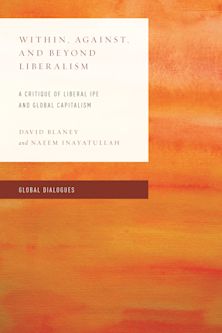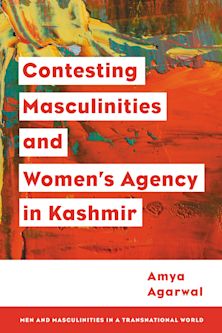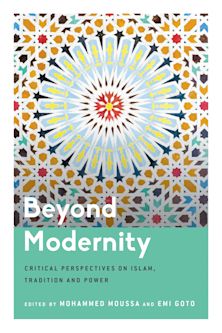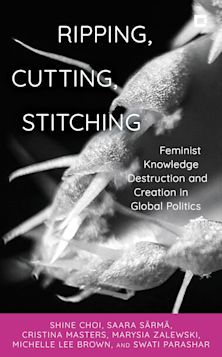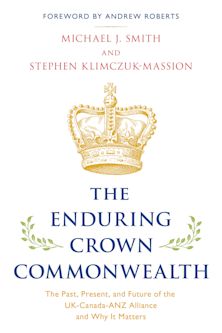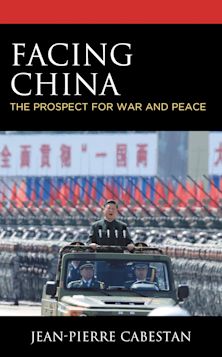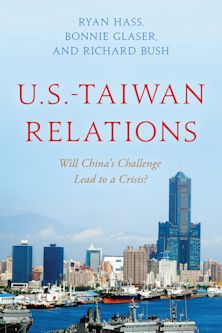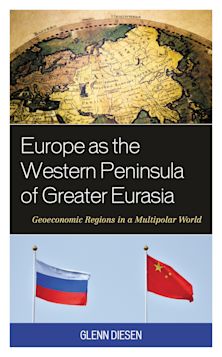- Home
- ACADEMIC
- Politics & International Relations
- Introduction to International Relations
- International Relations Theory
Inspection copy added to basket
This title is available for inspection copy requests
Choose your preferred format. EU customers: we regret we cannot currently supply print inspection copies via the website but ebooks are available.
Please note ebook inspection copies are fulfilled by VitalSource™.
Buy from Bloomsbury eTextBooks
You are now leaving the Bloomsbury Publishing website. Your eBook purchase will be with our partner https://www.vitalsource.com.
Your credit card statement will show this purchase originating from VitalSource Technologies. They will also provide any technical assistance you might require.
You must sign in to add this item to your wishlist. Please sign in or create an account
Description
International Relations Theory offers a unique approach to help students think conceptually and critically about how our contemporary world of diverse state and non-state actors works, but also the implications of domestic and global changes. The seventh edition covers current IR theory images (realism, liberalism, economic-structuralism, and the English School), interpretive understandings (constructivist, feminist, postmodern, critical theory, and green theory), normative considerations, and intellectual foundations from the ancient world to the modern era.
Table of Contents
Part I: The Intellectual Roots of International Relations Theory [formerly Part 3]
Chapter 2: The Ancients: Greeks, Chinese, and Indian Thought
Chapter 3: Greco-Roman Thought and the Middle Ages
Chapter 4: The Rise of the State and Modern Political Thought
Part II: Images of International Relations Theory
Chapter 5: Realism: The State and Balance of Power
Chapter 6: Liberalism: Interdependence and Global Governance
Chapter 7: Economic Structuralism: Global Capitalism and Postcolonialism
Chapter 8: The English School: International Society and Grotian Rationalism
Part III: Interpretive Understandings & Normative Considerations
Chapter 9: Constructivist Understandings
Chapter 10: Positivism, Critical Theory, and Postmodern Understandings
Chapter 11: Feminist Understandings in IR Theory
Chapter 12: Normative IR Theory: Ethics and Morality
Glossary
Product details
| Published | 15 Aug 2023 |
|---|---|
| Format | Ebook (PDF) |
| Edition | 7th |
| Extent | 480 |
| ISBN | 9798881877224 |
| Imprint | Rowman & Littlefield Publishers |
| Illustrations | 5 b/w illustrations; 4 tables |
| Publisher | Bloomsbury Publishing |
About the contributors
Reviews
-
I was taught with an earlier version of this text, and I teach with the newest one today. It is simply the best introduction to IR theory, a one-stop shop that provides a strong foundation for more advanced study of the field. I cannot recommend it highly enough.
Christopher J. Fettweis, Tulane University
-
This is an excellent text for courses in International Relations theory. With a great combination of historical context and modern approaches, no other text provides such an in-depth look at international relations theory that is so well written and easily accessible for undergraduate students.
Andrew Miller, Wilkes University
-
This book is vital to understanding the importance of international relations theories to our current times. Instead of focusing on just the main international relations theories, the authors link philosophy with modern approaches to understanding current events and interstate relationships. It is a must-read for people interested in studying international relations.
Michael O. Slobodchikoff, Troy University
-
The 7th edition of International Relations Theory offers an updated version of the comprehensive coverage of the wide arrays of perspectives within the field of International Relations. From the intellectual origins of International Relations Theory to the contending voices within the discipline, this is a coherent, comprehensive, and well-organized book for students interested in the field.
Bibek Chand, University of North Georgia
-
The study of international relations has become increasingly complex as new approaches take their place in the field alongside traditional and historical perspectives. IR no longer is only about realism, liberalism, and constructivism. Now feminist and normative understandings, and green theory have carved out niches in IR. For students, and even scholars, it can be difficult to stay abreast of the developments and debates ongoing within the field. Mark Kauppi and Paul Viotti offer an indispensable - and comprehensive - guide to the new and old intellectual trends that are shaping the study of international relations.
Christopher Layne, Texas A&M University
-
This is the most accessible and comprehensive textbook on IR Theory I have ever come across. My students love how the theories are presented as living and evolving fields of inquiry rather than unchanging idols placed on pedestals. The authors’ approach provides a solid foundation for student investigations into current events and incorporates fantastically into experiential learning opportunities.
Patricia C. Rodda, Carroll University



















